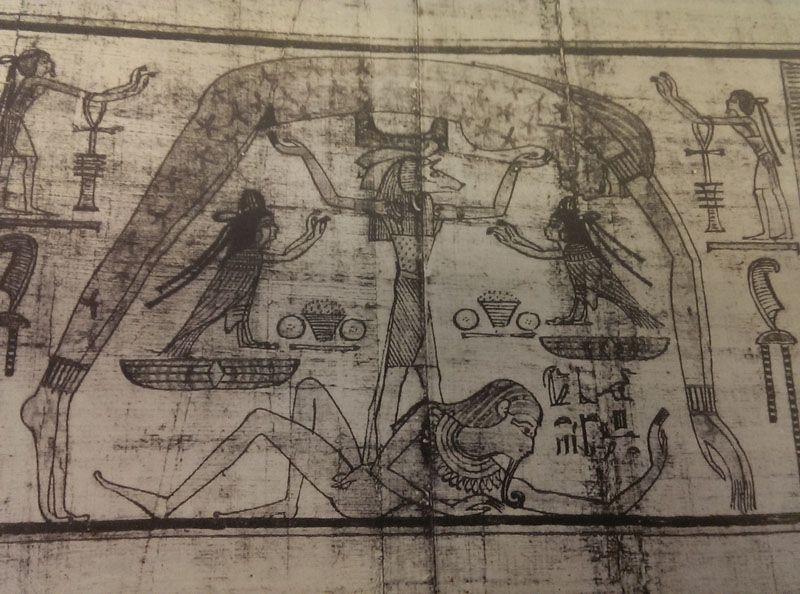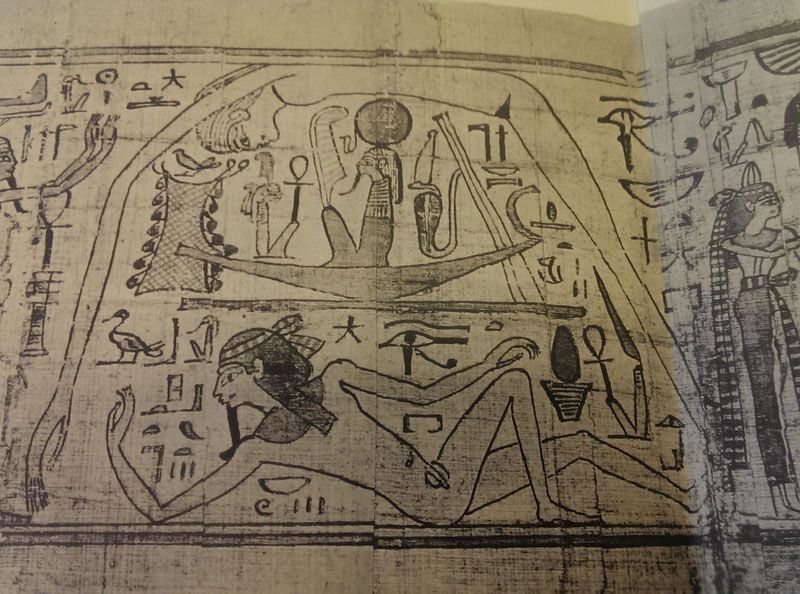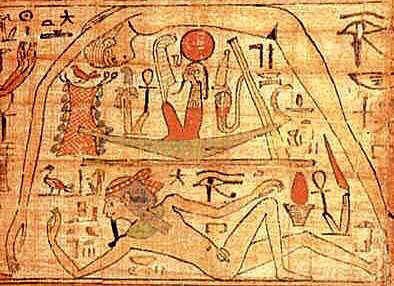Geb
This blog post brought to you by the ROM library
A big shoutout to them for letting me take an iced coffee in to their room of very old and out of print books. Thanks guys~
Let's talk about Geb!
Earth personified, Geb (or Gebeb/Kebeb in Egyptian) is one of the nine deities of the Ennead. He was the Grandfather to Horus, son to Shu and husband to the sky Goddess, Nut. Earthquakes came from his laughter, grain grew from his ribs and vegetation from his back. He was known as the source of fresh water and all the Earth produced. You would think such a major deity of fertility and farming would play a large part in the Pyramid Texts and have entire towns dedicated to his image. But the truth is, Geb is a background character in most stories.
Geb had no cultural worship center. The legends depicted on tomb walls and on papyri show him with very little agency besides being the ground. On the bright side, if you're looking for Geb in imagery, he is hard to miss. He's either depicted as a man with the lower crown of Egypt, a goose resting on his head, a man with a goose head, a man with the head of a hare, or a man with green skin to symbolize his fertility. And most infamously, also to symbolize fertility



He is the guy in the funeral procession, laying on the ground naked. In terms of Egyptian mythology, this is completely appropriate. He's a god of fertility, and being naked beneath Nut shows the intimate relationship between the two deities. But, like, a guy just died, Geb. Disprespectful!
Geb does show up in one of the versions of the Contendings of Horus and Set. When the two fight over the rule of Egypt as King after the late Osiris, Geb acts as presiding judge. At first, he splits up the kingdom into Lower and Upper Egypt. Set rules Upper Egypt, Horus rules Lower Egypt. But, Set, the token god of chaos and evil, messes up that very fair deal by being a Bad News Bears King. He's a dictator and brings war to the land. So, like a father reprimanding a misbehaving child, Geb takes away Upper Egypt from Set and gives it to Horus- making Horus the sole king of Egypt.
A story that Geb actually stars in, is about how he lusts after his mother, Tefnut. He's real messed up about his feelings and goes on a journey across the land to sort them out. Until he gets word that his father, Shu, has died. He books it back to the kingdom, forces himself on his mother, and then becomes the new king of Egypt without any consequence whatsoever.
Surprising no one, this was based on a Greek myth.
The book 'The Gods of Ancient Egypt' by Barbara Watterson, tells of a shrine in the town Bata. Watterson says the walls depict a 'bisexual' Geb, because it shows the deity laying a egg. I, er, think she meant Geb is depicted as a hermaphrodite. But yes, there's a creation myth with Geb. Often associated with the goose, it's said that in the beginning he laid an egg, that would hatch the great Benu Bird that brought the great sun and horizon. Geb is attributed the epiphet 'The Great Cackler' from this story.
Another title for Geb is Iry-paat-neteru, or Heir of Gods. Because of his judgement between Set and Horus, and taking the throne after Shu dies (and other awful reasons), Geb's name is referred to in transitions of kingship. A throne was called 'the seat of Geb', and the king the 'Heir of Geb'. He also became synonymous with the grave. A deceased king would 'sleep within the house of Geb' or 'will enter into Geb'.
Besides that, not much else is written about Geb. He seem to be most famous for his family members. That and loafing beneath everything while naked. He might not have had the lavish temples and worship centers like his family members, but if you were a farmer, and/or a husband trying to conceive- Geb was your guy. Do not introduce him to your mom.
